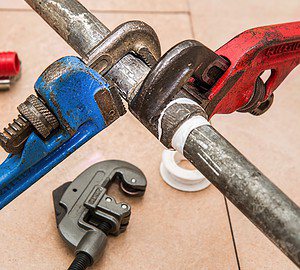Selling a property can be a significant decision, and it’s not generally one that people make overnight on a whim. Homeowners typically think long and hard about why their current home doesn’t suit their needs or how their situation has changed enough that they’re no longer able to own the property they currently do.

Everyone puts their house up for sale for many different reasons, but you can’t help but wonder what those reasons are as you visit open homes in your area. You can learn about some of the most common ones below.
The House Is in a State of Disrepair
Sometimes, people start thinking about selling a house because it has fallen into a state of disrepair. It may have started with one expensive issue, and that problem caused many others. Not everyone can afford to cover costly repairs like new roofs and plumbing, so the property’s condition can worsen until it’s no longer safe for a family or even habitable in the long term.
When a property gets to this point, selling is undoubtedly one of the most obvious options, but it can also be one you might not consider if you believe your only option is to go through the public market. You may not like the idea of having people walking through it during open houses or having to make repairs as a condition of a sale.
Fortunately, you do have other options at your disposal, whether you’re selling due to issues with the house or because you need to move quickly. You can sell to professional buyers who offer cash for homes, renovate them, and on-sell them to other buyers.
The Property Was Inherited
When someone passes away in ownership of property, it’s often passed down to an heir or next of kin. If you end up in possession of that property, you’re not always sure what to do with it.
You might already own a home and can’t afford the financial obligations of a second one, or you don’t live close enough to it to make it convenient to hold onto. Some people renovate their inherited homes to rent out, but selling is always an option worth considering. This way, you don’t have to concern yourself with the maintenance and care of a second home or have your time taken up with the administration involved in being a landlord.
They’ve Outgrown It
Most homeowners start on the bottom rung of the property ladder, purchasing a home that may suit their needs well enough at the time, but possibly not in the long term. Often, outgrowing a property is one of the most common reasons for deciding to sell.
You might have initially purchased a small home but now have children and pets who need their space. Some people also decide they need a bigger yard, an extra bathroom, or more garaging.
Outgrowing a property can mean that you need to sell the one you have and find a new one that suits your current needs a little better. This might also be something you repeat many times before eventually downsizing once more when you reach retirement.
The House Is Too Big
Many families upgraded their homes to accommodate the needs of their children and pets. However, as the years go by, children grow up and move out, and property owners can be left with many empty rooms they no longer need.
Often, a feasible option is downsizing to something smaller, easier to maintain, and more affordable to heat and cool. They may still buy a property of similar styling to their home but with a smaller footprint to cater to their changing needs.
They Need to Move
Situations can change, and some people find themselves needing to move out of a town, city, state, or even country for a job opportunity or another reason. The house may be perfectly suitable for their needs, but it’s just in the wrong location for where they need to be.
In this situation, selling is one of many options. Some people decide to rent their property out and rent one in their new location if it makes financial sense, while others choose to leave it sitting with all their furniture and visit it when they can. However, with maintenance and finances, selling can ultimately end up being one of the most popular options in this unique situation.
Access to Life’s Necessities
Being close to schools, jobs, and even grocery stores can be a common reason people decide to sell their homes and move on. They may not be leaving the town or city in which they live, but they might be relocating for their children’s educational opportunities or their work requirements.
In contrast, working remotely can also change people’s priorities, and they decide that they don’t need to be as close to their place of business. Realizing that properties can often be cheaper outside of main centers, they sell up and buy a more affordable home that leaves them with money in the bank.
It’s a Rental Property
One of the soundest investments you can make is in property. It’s a physical asset that grows in value, and you can hold onto it for as long as you like. However, being a landlord can be tiring. Some people become frustrated with tenants who don’t pay their rent on time, or they simply don’t like having to make property checks or manage maintenance.
While property managers can assist with these jobs, it’s easy to feel like the best option is to cash up a rental property and put that money toward something else.
Their Financial Situation Has Changed
While the median monthly mortgage payment in the United States is $1,100 based on U.S. Census Bureau data, those aren’t the only costs associated with homeownership. Homeowners also have to pay property taxes, insurance and manage repairs and maintenance.
If a homeowner’s financial situation has changed, these costs can be too much to manage. Some people even fall behind on their property taxes and need to sell their property quickly to catch up. Until they’re able to strengthen their financial position and get their life back on track, selling a property and renting can be one of the best options at their disposal.
Selling a property is a personal choice and generally a decision that’s made for a variety of different reasons. Fortunately, once the decision is made, it can be a fast and easy process that can see you with cash in hand within a matter of days.



